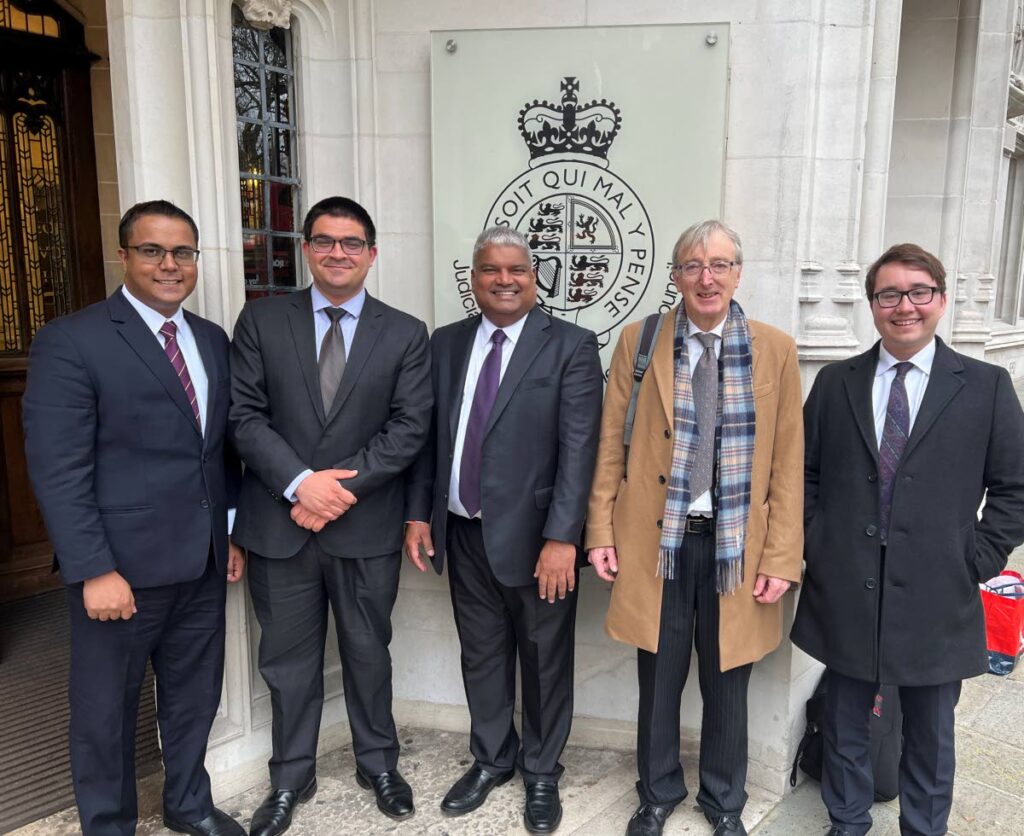Privy Council upholds UNC's local government challenge

In an exceptional ruling, three Privy Council judges on Thursday morning upheld a legal challenge against Government's extension of the term of incumbent local government representatives by a year.
Thursday’s ruling of the apex court in London was precedent-setting.
It was also rare that both the president of the UK’s supreme court and his deputy – Lords Robert Reed and Patrick Hodge – sat on the same panel in March along with three other judges who, in a last-minute decision on Wednesday, opted not make their ruling public by publishing it on the court's website, but instead to hold a sitting to deliver it.
It was delivered at 8.30 am TT time.
The local-government challenge was led by UNC activist Ravi Balgobin-Maharaj, who contended that Justice Jacqueline Wilson and the Appeal Court got it wrong by consecutively rejecting his case in November 2022 and February 2023.

Balgobin-Maharaj had complained about the passage of amendments in 2022 which extended the term of local government councillors to four years and also allowed the elections to be delayed by a year.
The elections were due between December 2022 and March 2023, but the partial proclamation of local-government reform legislation allowed the extension of the terms of councillors and aldermen, who were elected in 2019, to four years.
The amendments had been passed without Opposition support.
In his complaint, Balgobin-Maharaj said he became concerned after Rural Development and Local Government Minister Faris Al-Rawi hosted a press conference and announced the Government's intention to proclaim certain sections of the legislation.
Balgobin-Maharaj contended that Al-Rawi misinterpreted the effect of the legislation when he announced plans to apply it to incumbent councillors and aldermen. He maintained it did not have a retroactive effect.
Lords Richards, Reed and Hodge, who delivered the majority ruling, agreed with the arguments of Balgobin-Maharaj’s attorney Anand Ramlogan, SC, who led King’s Counsel Peter Carter and a team of attorneys from his Freedom Law Chambers, on the construction of the amendments to the Municipal Corporations Act (MCA).
Lord David Richards, who delivered the majority ruling, said the local government reform amendments could only apply to representatives in the future, admitting, though, there was a degree of ambiguity in the language as it related to incumbent councillors and aldermen.
Richards said if Parliament intended to confer on the Government the power to decide whether or not the terms of office of elected representatives should be extended by a year, it needed to do so expressly.
And although Balgobin-Maharaj was unsuccessful in his constitutional complaint, the judges agreed that: “Parliament cannot itself override fundamental rights or the rule of law by general or ambiguous words.
“The right of citizens to vote for councillors and, indirectly, for aldermen, indeed the whole democratic structure of local government, is statutory.
“This is true of all voting rights and democratic processes, at the level of central as well as local government. Voting rights are not a product of the common law."


Comments
"Privy Council upholds UNC’s local government challenge"